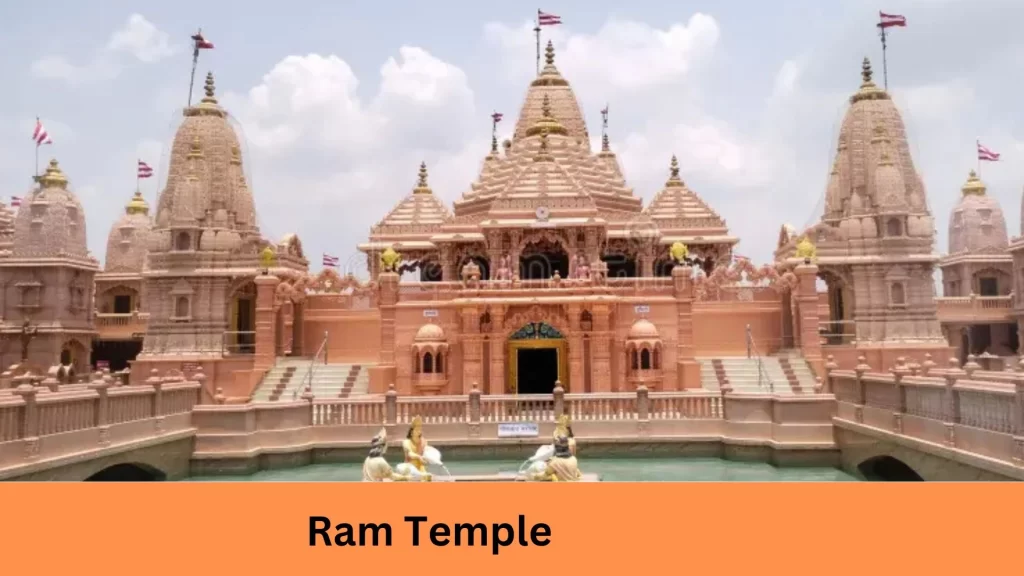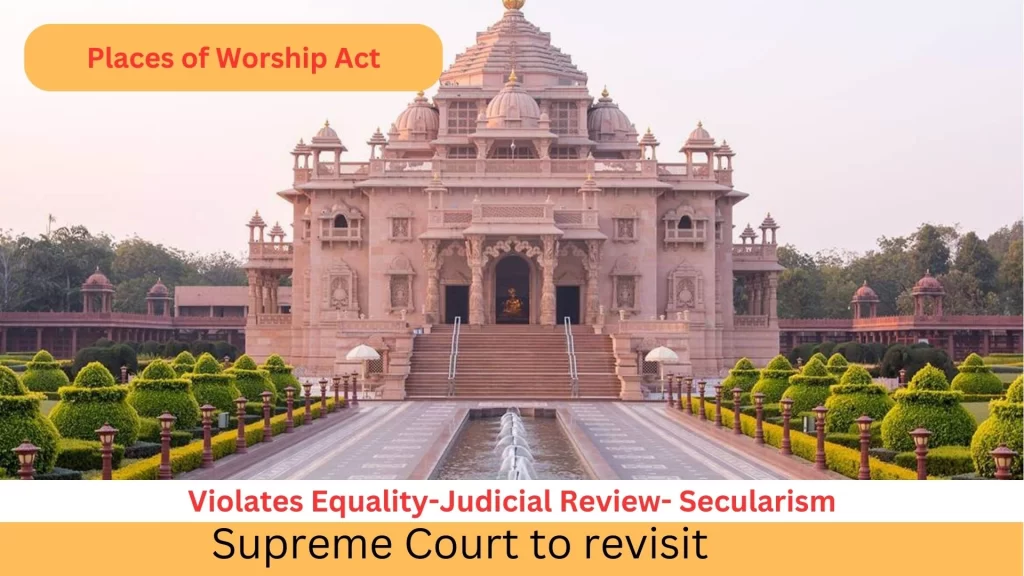The Places of Worship Act, 1991, enacted by the Parliament of India, aims to preserve the religious character of places of worship as they existed on August 15, 1947. The law mandates that no one shall convert a place of worship of any religion into one of another religion, and any legal proceedings related to disputes over the religious character of a place shall be barred. While this law ostensibly seeks to protect communal harmony, a deeper examination reveals potential constitutional infirmities that challenge its validity.
Places of Worship Act : The Doctrine of Basic Structure
The landmark judgment in the Keshavananda Bharati v. State of Kerala (1973) serves as the cornerstone of Indian constitutional jurisprudence. This case established the doctrine of basic structure, affirming that Parliament cannot alter the essential features of the Constitution, even through amendments. Fundamental rights, secularism, the rule of law, and judicial review were identified as elements of this basic structure. Any law or amendment infringing upon these core principles is deemed unconstitutional.
Constitutional Issues with the Places of Worship Act
- Violation of the Right to Equality (Article 14): The Act’s blanket prohibition on altering the religious character of places of worship disregards the unique historical and social contexts of specific disputes. By freezing the status of all places of worship as of 1947, the Act denies individuals or communities the right to seek judicial remedy, thereby violating the principles of equality and fairness enshrined in Article 14.
- Restriction on Judicial Review: Judicial review is a fundamental part of the Constitution’s basic structure. By barring courts from entertaining disputes regarding the religious character of places of worship, the Act effectively nullifies this essential feature. This restriction not only limits the judiciary’s power but also undermines the rule of law.
- Contravention of Secularism: Secularism, as a basic feature of the Constitution, requires the state to adopt a neutral stance towards all religions. The Act’s retrospective application to freeze the religious character of places of worship arguably prioritizes historical status quo over the evolving needs and sentiments of communities, potentially exacerbating communal tensions rather than mitigating them.
Apex Court Judgments on the Act
The Supreme Court of India has had opportunities to address the constitutional validity of the Places of Worship Act in several cases. These judgments provide critical insights into the Act’s alignment with constitutional principles:
- Ayodhya Verdict (2019): In the landmark M. Siddiq v. Mahant Suresh Das case concerning the Ram Janmabhoomi-Babri Masjid dispute, the Supreme Court upheld the constitutional validity of the Places of Worship Act. The Court lauded the Act as a measure to promote secularism and communal harmony. However, it did not delve deeply into the Act’s potential conflict with fundamental rights or its impact on the basic structure doctrine.
- Recent Challenges: Multiple petitions have been filed in recent years challenging the Act’s constitutional validity. Critics argue that the Act arbitrarily denies individuals the right to judicial remedies, particularly in cases where there is historical evidence of encroachment or destruction of religious structures. The Court’s final pronouncement on these petitions is eagerly awaited and will have far-reaching implications for Indian constitutional law.
Challenges in the Pending SLPs Before the Supreme Court
The pending Special Leave Petitions (SLPs) before the Supreme Court regarding the Places of Worship Act bring forward several critical challenges:
- Historical Grievances: Petitioners argue that the Act’s retrospective application unfairly freezes the status quo without addressing historical wrongs. Communities seeking to reclaim or restore their religious heritage are effectively denied their constitutional right to seek justice.
- Denial of Judicial Remedies: The SLPs challenge the Act’s provision that bars legal proceedings concerning the religious character of places of worship. This denial is seen as a violation of fundamental rights, including the right to equality and the right to access justice.
- Inconsistency with Secularism: Some petitioners contend that the Act’s approach to preserving communal harmony may inadvertently favor specific religious communities, thereby undermining the principle of secularism.
- Judicial Review and Basic Structure: By barring courts from reviewing disputes, the Act undermines judicial review, an essential component of the Constitution’s basic structure. The SLPs emphasize that this restriction sets a dangerous precedent for future legislative actions.
Historical Context and Implications

The Places of Worship Act was enacted in the backdrop of rising communal tensions, particularly surrounding the Babri Masjid-Ram Janmabhoomi controversy. By freezing the status quo of 1947, the Act sought to prevent future disputes. However, this approach disregards historical grievances and complexities. For instance, the Act’s retrospective application denies communities the opportunity to address historical wrongs through legal means, effectively prioritizing peace over justice.
Moreover, the Act’s rigid provisions may inadvertently deepen communal divisions. In a pluralistic society like India, addressing historical grievances through dialogue and judicial mechanisms is essential for fostering long-term harmony. By precluding such avenues, the Act risks perpetuating resentment and mistrust among communities.
The Places of Worship Act, though well-intentioned, raises serious constitutional concerns. Its provisions infringe upon fundamental rights, restrict judicial review, and challenge the principles of secularism and equality. While the Supreme Court’s endorsement of the Act in the Ayodhya verdict highlights its potential to promote communal harmony, a more nuanced examination is required to address its constitutional infirmities.
The doctrine of basic structure, as articulated in the Keshavananda Bharati case, underscores the inviolability of fundamental constitutional principles. Any law, no matter how noble its intent, must adhere to these principles. As the judiciary continues to grapple with challenges to the Places of Worship Act, it must balance the need for communal harmony with the imperative to uphold constitutional rights and justice. Only through such a balanced approach can India truly honor its commitment to secularism, equality, and the rule of law.






